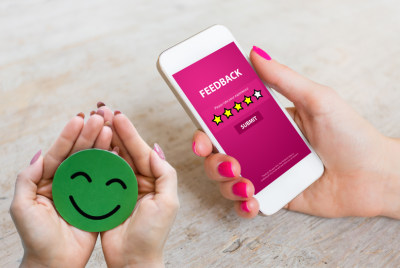Understanding Funnel Strategy: A Guide for Coaches and Course Creators
As an advisor in automation and funnel strategy, I understand the importance of implementing an effective funnel strategy for coaches and course creators. The right funnel strategies can significantly improve lead generation, conversion rates, and customer retention. In this guide, I will walk you through the fundamentals of funnel strategy, its benefits, implementation techniques, and how to overcome common challenges.
Introduction
Running a successful coaching or course creation business requires more than just expertise in your field. To attract and convert potential clients, you need a well-planned funnel strategy. This article aims to provide you with a comprehensive guide to understanding and implementing funnel strategies tailored specifically to your coaching or course creation business.
What is a Funnel Strategy?
Definition
A funnel strategy is a systematic approach to lead generation, nurturing, and conversion. It involves guiding potential customers through a series of stages, starting from awareness and ending with a desired action, such as a purchase or enrollment. Think of it as a metaphorical funnel where you attract a wide audience at the top and gradually narrow down to the most qualified leads.
Importance
Implementing a funnel strategy is crucial for coaches and course creators as it allows you to optimize your marketing efforts, improve conversion rates, and build long-term relationships with your audience. By understanding the needs and preferences of your potential clients at each stage of the funnel, you can provide them with valuable content, support, and ultimately, the solutions they seek.
Types of Funnels
There are various types of funnels that coaches and course creators can utilize based on their specific goals. Let’s explore three common funnel types:
Lead Generation Funnel
The lead generation funnel focuses on capturing leads and nurturing them into potential customers. It typically consists of a series of steps, including lead capture forms, lead magnets, and automated email sequences. The goal is to provide valuable content to prospects in exchange for their contact information, allowing you to build a relationship and guide them towards your coaching services or course offerings.
Sales Funnel
The sales funnel is designed to convert leads into paying customers. It involves a series of stages where prospects are educated about your offerings, provided with compelling offers, and encouraged to make a purchase. This funnel includes elements such as sales pages, upsells, downsells, and order confirmation pages to maximize conversions and revenue.
Onboarding Funnel
The onboarding funnel focuses on the post-purchase experience and aims to turn customers into loyal advocates. It involves providing a smooth transition for customers after they make a purchase, delivering valuable content, offering additional resources, and nurturing the relationship to encourage repeat business and referrals.
The Benefits of Funnel Strategy
Implementing a funnel strategy can bring several benefits to coaches and course creators. Let’s explore some of the key advantages:
Streamlined Customer Journey
A well-designed funnel strategy provides a clear path for potential clients, guiding them through each stage of the customer journey. By mapping out the steps from awareness to conversion, you can ensure a seamless and engaging experience for your audience, increasing their trust and likelihood of taking the desired action.
Increased Conversion Rates
Funnel strategies focus on nurturing leads and building relationships, which ultimately leads to higher conversion rates. By providing valuable content, addressing pain points, and showcasing the value of your coaching services or courses, you can significantly improve the chances of converting leads into paying customers.
Efficient Resource Utilization
With a funnel strategy in place, you can optimize your marketing efforts and resources. By understanding the specific needs and preferences of your target audience at each stage of the funnel, you can tailor your messaging, content, and offers accordingly. This targeted approach ensures that you are effectively utilizing your resources to reach the right people at the right time.
Implementing a Funnel Strategy
Now that we understand the importance and benefits of a funnel strategy, let’s delve into the key steps for implementing an effective funnel for coaches and course creators:
Identify Your Target Audience
To create a successful funnel, you need to have a clear understanding of your target audience. Define their demographics, interests, pain points, and aspirations. This information will help you tailor your content and messaging to resonate with them effectively.
Create Compelling Lead Magnet
A lead magnet is a valuable piece of content or resource that you offer to your audience in exchange for their contact information. It could be an ebook, a video training, a checklist, or any other content format that provides value and addresses a specific problem your target audience faces.
Design a High-Converting Landing Page
A landing page is a crucial component of your funnel strategy. It serves as the entry point for your potential clients and should be designed to capture their attention and encourage them to take the desired action. Use persuasive copy, compelling visuals, and clear calls-to-action to optimize conversions.
Nurturing and Qualifying Leads
Once you have captured leads, it’s essential to nurture and qualify them. Set up automated email sequences that deliver valuable content, address their pain points, and showcase your expertise. This process helps build trust and qualifies leads based on their engagement and interest level.
Closing the Sale
When leads have been nurtured and qualified, it’s time to make the offer. Create persuasive sales pages or enrollment pages that clearly communicate the benefits of your coaching services or courses. Include testimonials, social proof, and compelling offers to motivate prospects to take the next step.
Tools and Automation
Implementing a funnel strategy becomes much more efficient and effective with the right tools and automation. Here are some essential tools to consider:
Customer Relationship Management (CRM) Systems
A CRM system helps you manage and organize your leads and customer data. It allows you to track interactions, segment your audience, and automate various aspects of your funnel strategy, such as email campaigns and follow-ups.
Email Marketing Platforms
Email marketing platforms enable you to create and automate email sequences, deliver targeted messages, and analyze email performance. These platforms provide valuable insights into open rates, click-through rates, and conversions, helping you optimize your email marketing efforts.
Marketing Automation Software
Marketing automation software allows you to streamline and automate various marketing tasks, such as lead scoring, lead nurturing, and personalized content delivery. It helps you save time, deliver relevant content, and provide a personalized experience for your audience.
Tracking and Analytics
To measure the effectiveness of your funnel strategy and make informed decisions, tracking and analytics are essential. Here are some key aspects to consider:
Key Metrics to Monitor
Identify the key metrics that align with your goals and track them regularly. These may include website traffic, conversion rates, email open rates, click-through rates, and revenue generated. Analyzing these metrics will provide insights into the performance of your funnel and areas for improvement.
Conversion Tracking
Implement conversion tracking to understand how effectively your funnel is converting leads into customers. Set up conversion goals within tools like Google Analytics or your CRM system to track the actions taken by your audience, such as form submissions, purchases, or course enrollments.
Optimizing and Iterating
A successful funnel strategy is not static; it requires constant optimization and iteration. Here are a couple of strategies to consider:
A/B Testing
Perform A/B tests to compare different versions of your landing pages, emails, or offers. By testing variations and analyzing the results, you can identify what resonates best with your audience and optimize your funnel for better performance.
Customer Feedback
Collect feedback from your customers to understand their experiences and identify areas for improvement. Surveys, customer interviews, or feedback forms can provide valuable insights into how to enhance your funnel strategy and better meet your audience’s needs.
Common Challenges
While implementing a funnel strategy, you may encounter some common challenges. Here are a few and how to overcome them:
Overwhelming Complexity
Creating and managing a funnel strategy can be complex, especially for beginners. Start with a simple funnel and gradually expand as you gain experience and understand your audience better. Break down the process into manageable steps and seek guidance from experts or resources to overcome any overwhelm.
Technical Difficulties
Implementing automation tools and tracking systems may involve technical challenges. Take the time to familiarize yourself with the tools and seek support from customer service or online communities. Many platforms offer tutorials and documentation to help you navigate through technical obstacles.
Lack of Strategy Alignment
Aligning your funnel strategy with your overall business goals and objectives is crucial. Ensure that your funnel strategy aligns with your brand, target audience, and offerings. Regularly review and refine your strategy to ensure it remains in line with your business objectives.
Conclusion
Implementing a well-planned funnel strategy is essential for coaches and course creators to attract, engage, and convert potential clients. By understanding the stages of the funnel, utilizing automation tools, tracking performance, and continuously optimizing, you can create a streamlined and effective customer journey. Overcome common challenges, tailor your strategy to your target audience, and enjoy the benefits of increased conversion rates and business growth.
FAQs
Q1: How long does it take to see results from a funnel strategy?
Typically, it takes time to see significant results from a funnel strategy. It depends on various factors such as your industry, target audience, and the complexity of your funnel. However, with consistent effort, optimization, and tracking, you can start observing positive results within a few months.
Q2: Can I customize my funnel strategy based on my unique coaching or course offerings?
Absolutely! In fact, customizing your funnel strategy based on your unique coaching or course offerings is highly recommended. Each coaching or course business has its own target audience, value proposition, and goals. By tailoring your funnel strategy to align with your specific offerings, you can effectively communicate the benefits and value you provide to your audience.
Q3: How often should I review and optimize my funnel strategy?
It’s important to regularly review and optimize your funnel strategy to ensure its effectiveness. Depending on your business and the pace of changes in your industry, a quarterly or bi-annual review is a good starting point. Monitor key metrics, gather feedback from your audience, and stay updated with industry trends to make informed adjustments and improvements to your funnel.
Q4: Do I need to be tech-savvy to implement a funnel strategy?
While some technical knowledge can be helpful, you don’t need to be a tech expert to implement a funnel strategy. Many automation tools and platforms offer user-friendly interfaces and provide step-by-step guidance. Additionally, there are resources available, such as tutorials and support documentation, to assist you in navigating the technical aspects of setting up and managing your funnel.
Q5: Can I use a funnel strategy for both coaching and course offerings?
Absolutely! A funnel strategy can be applied to both coaching and course offerings. The key is to understand the specific needs and preferences of your target audience and design your funnel accordingly. Whether you are selling coaching services, online courses, or a combination of both, a well-designed funnel can help you attract, engage, and convert potential clients effectively.
Remember, a successful funnel strategy requires continuous learning, adaptation, and experimentation. By staying informed, keeping an eye on industry trends, and leveraging the right tools, you can create a highly effective and personalized funnel strategy that drives growth and success for your coaching or course creation business.




